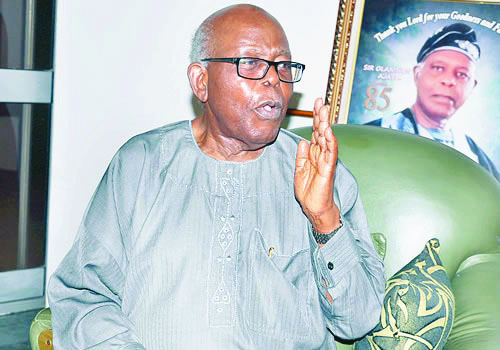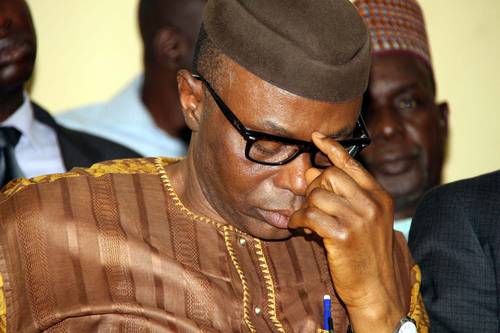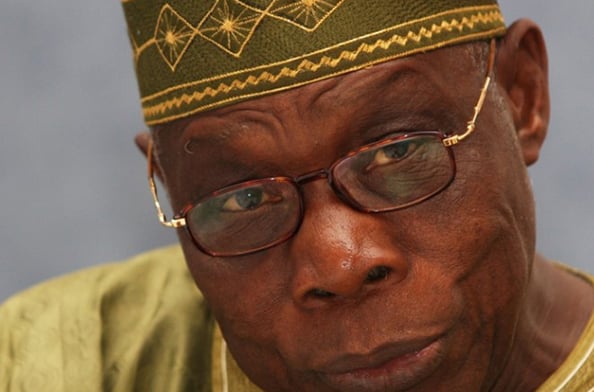For policy makers and stakeholders in the area of Agriculture and particularly non-oil agricultural exports, you will agree with me that incentives are a necessary ingredient to stimulate and drive growth exponentially.
Sometime last month, the Minister of Industry, Trade, and investment, Dr Okechukwu Enelamah met with over 200 exporters to herald the resumption of the Export Expansion Grant(EEG), an incentive that seeks to spur non-oil exports and enhance Nigeria’s competitiveness trade wise in the comity of nations.The scheme, the only incentive exporters enjoy to date and which they pass on to farmers to encourage them to grow more, was suspended by the last administration under the guise that it was seriously abused though not one company has been singled out to have violated. It was all based on gut feeling and not empirical study. We all have hunches and if we were to act on that there will be bedlam..
After series of engagements with the organized private sector (OPS) since coming to power, the Buhari administration through the Minister and Minister of state for Industry ,Trade and investment(Whose ministry superintends over the scheme)and in conjunction with Minister of Finance who funds the scheme have in their wisdom listened to the cry of genuine and legitimate exporters for the scheme to be continued though in a reformed and revised format. He set up an inter-ministerial panel to review the scheme and come up with appropriate recommendations that will be affordable and in the long run sustainable .
Major Highlights of the scheme as enunciated by Dr Enelemah include its renaming to EXPORT CREDIT GRANT and the certificates issued to be called EXPORT CREDIT CERTIFICATE and no longer NEGOTIABLE DUTY CREDIT CERTIFICATES.(Ndccs). Outstanding claims which runs into billions of naira after another round of verification will be paid but exporters will now use same to pay for their taxes, Corporate tax, Value added tax. The Minister who probably recognized that the government currently suffers a huge credibility deficit with the private sector came to seek for the buy-in of the exporters as he knows based on the local adage’ you cannot shave a man’s head in his absence’ Other highlights included in his presentation and subject to tweaking and fine-tuning based on feedback from exporters are- that the scheme will now be budgeted for to promote policy consistency and transparency, Technology enhancement through the use of scanners will be incorporated to improve confidence in the export documentation generated and government will commence the new scheme effective 1st of January 2017 which by the way heralds the beginning of the new financial year.
Advertisement
Though exporters roundly applauded and commended the Minister for taking the giant step of moving the needle, they expressed a few reservations which border largely on negotiability/transferability of the tax certificates to group companies in their fold, other entities and companies in say telecoms, banking and companies quoted on the Nigerian stock exchange and for which government already has visibility of in the tax dragnet. By the way, not all exporters can fully utilize their outstanding claims to pay taxes to FIRS and export profits are already exempt from corporate tax and equally no VAT on exports. Exporters advocate for the usage of Export credit certificates to be used to settle outstanding loans/intervention funds to government agencies like Central Bank, Bank Of Industry, Nigeria Export Import Bank, Bank of Agriculture amongst others. They should be used to obtain loans from commercial banks subject to CBN guarantees and indemnity and in equal measure used as collateral. The Nigerian export community is keen on these additional inputs to be incorporated in the final report.
The aforementioned recommendations will repose further confidence and demonstrate to a large extent the seriousness of government to walk the talk and avoid the rhetoric of the past. What was missing before now was the sincerity of purpose on the part of government to address the concerns of the sector while rightly admitting that Government needed to increase revenues and diversify the economy through the non-oil route, it did not willingly demonstrate how it intended to achieve same without recourse to the players. The foregoing has now amply shown that.
As Chairman Nigerian Association Of Chamber of Commerce, Industry, Mines and Agriculture Export Action Group(NACIMMA export action group), I can confidently commend the Minister of Industry, Trade and investment and the Honorable Minister of Finance for the speed of reform and the joint effort they have put in to getting us this far but i must warn that we will only accept there is light at the end of the tunnel when implementation starts with the new scheme in 2017 and outstanding claims start getting redeemed from beginning of December 2016. We must not end up with another hope betrayed as reflating the economy and spending our way out of recession is not a day’s job and the onus is on us all to do our bit from our respective spheres of influence. From the Exporters side I commit to the fact that though we have being doing our bit we will strive to do more and that can only help to build a better economic base hinged upon collaboration and partnerships.
Advertisement
Views expressed by contributors are strictly personal and not of TheCable.
Add a comment







